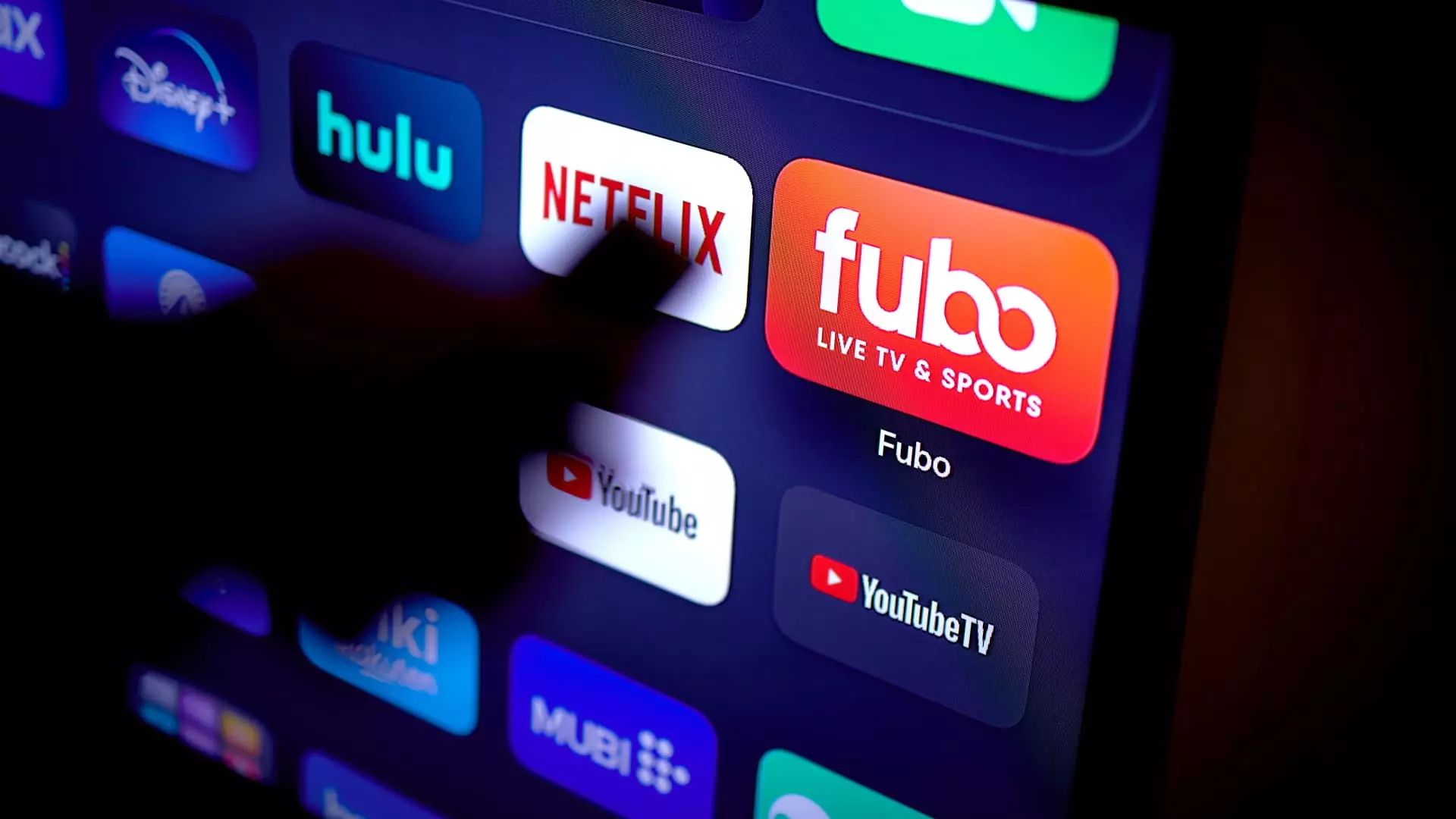In a surprising twist within the streaming landscape, Disney has announced its plans to merge its Hulu+ Live TV service with Fubo, a well-known internet TV provider. This collaboration will position Disney as the majority owner of the newly formed entity, holding a commanding 70% stake while Fubo shareholders retain the remaining 30%. Set for completion within 12 to 18 months, this merger could redefine the dynamics of live streaming in a market increasingly dominated by fierce competition.
As both Hulu+ Live TV and Fubo have managed to attract a combined audience of approximately 6.2 million subscribers, the merger hints at a strategic alignment that aims to bolster their service offerings. Both platforms are designed to mirror traditional cable TV bundles, ensuring access to linear TV networks that users have come to expect. While the merger is likely to enhance audience retention through the synergy of these two services, both will remain accessible as standalone offerings, providing consumers a diverse array of choices within the ever-evolving streaming ecosystem.
Fubo’s Strategic Focus
Fubo has carved out its niche predominantly as a sports and news provider, a focus that distinguishes it from competitors like YouTube TV. CEO David Gandler emphasized the importance of this unique positioning, highlighting the integration with Hulu+ Live TV as enhancing user retention rates. Given the high demand for sports content, particularly regional sports networks that broadcast local professional games, Fubo’s model has historically commanded premium pricing and a loyal subscriber base.
However, this concentration on sports has necessitated cuts elsewhere. Fubo had previously stripped its bundles of many entertainment-focused channels, which was a significant risk given the broad appeal of traditional television content. The merger with Hulu+ Live TV offers a remedy to this gap, presenting a potentially expansive offering that combines both entertainment and sports in a single package.
Gandler expressed optimism regarding the merger’s potential profitability, projecting immediate cash flow positive outcomes that would elevate Fubo’s status within the streaming marketplace. Should the merger materialize as planned, the new entity would not only elevate Fubo’s market presence but also significantly alter the conversation regarding streaming services.
An intriguing backdrop to this merger is the legal friction between Fubo and the proposed sports streaming service, Venu. Previously, Fubo had felt threatened by Venu, a partnership among Disney, Fox, and Warner Bros. Discovery that aimed to consolidate a significant market share of sports content within a single platform. This fear resulted in a lawsuit initiated by Fubo, which alleged anticompetitive practices that could potentially jeopardize its business model.
Interestingly, the merger with Disney has precipitated a resolution of this legal conflict. With the signing of the new agreement comes a $220 million cash compensation from the trio of media companies to Fubo, in addition to a sizable term loan commitment for 2026. This settlement may pave the way for Venu to proceed with its launch plans, although details about its services remain scant.
While some might view this as a strategic compromise, it underscores the broader tensions that define the streaming market today. Disney, along with its partners, controls a staggering portion of the U.S. sports media landscape, which raises questions about the balance of power in the streaming wars.
Looking ahead, this merger signifies a pivotal moment for the streaming industry. With many incumbents grappling with subscriber retention amidst an increasingly crowded marketplace, partnerships like the one between Disney and Fubo may become essential. As the combined entity aims to differentiate itself through an extensive array of offerings, it highlights the increasing consumer demand for bundled services that encompass both entertainment and sports.
Fubo’s emphasis on strength through diversity may prove beneficial in the long run, especially as it prepares to launch fresh broadcasting services that incorporate Disney’s extensively popular networks. As viewers continue to shift away from traditional cable towards a more fluid streaming experience, the demand for multi-faceted platforms grows.
In essence, the merger between Disney and Fubo is more than just a corporate alliance; it is a reflection of the ever-evolving landscape of media consumption. The integration of resources, strategic interests, and legal disputes illuminate not just the challenges, but also the opportunities present in this vibrant domain. As consumer preferences continue to change, the outcome of this merger could very well shape the future of TV consumption for years to come.

